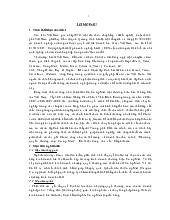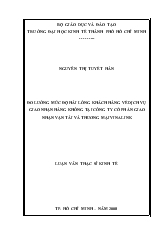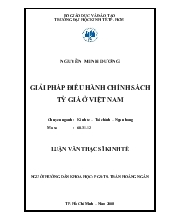Isolation of bacillus subtilis and its application on the prevention of intestinal diseases in chicken
- Người chia sẻ :
- Số trang : 28 trang
- Lượt xem : 11
- Lượt tải : 500
- Tất cả luận văn được sưu tầm từ nhiều nguồn, chúng tôi không chịu trách nhiệm bản quyền nếu bạn sử dụng vào mục đích thương mại
Bạn đang xem trước 20 trang tài liệu Isolation of bacillus subtilis and its application on the prevention of intestinal diseases in chicken, để xem tài liệu hoàn chỉnh bạn click vào nút DOWNLOAD LUẬN VĂN ở trên
In recent years, the strong development of poultry breeding has brought great values to economo-social benefits. However, it also results in many concerns. One of the concerning issue is the overuse of antibiotics in the prevention from diseases and in the stimulating growth. In consequence, antibiotic resistant bacteria are increasing in nature and that affects significantly the use of antibiotics for infectious diseases in human beings. Therefore, the majority of developed countries did limit the use of antibiotics in breeding. In order to replace them in breeding, scientists put forward different solutions, one of them is using probiotic- useful microorganisms in gastrointestinal activities and, broadly speaking, in improving health. Bacillus subtilis are universal bacteria that are present in nature, and they are almost not harmful to human being as well as to several kinds of animals but resistant strongly to several physical and chemical factors. As a result, they were selected and chosen as probiotics for human beings and breeding animals in industrial models. However, B. subtilis have the diversity in biological properties, so all of them could not be used as probiotic and just some strains of probiotic could be suitable and effective for certain animals. The thesis “Isolation of Bacillus subtilis and its applications on the prevention of intestinal diseases in chicken” was carried out in order to find out the alternatives that could replace antibiotics in breeding, to increase productivity and effectiveness in industrial chicken breeding and to reduce the risks of antibiotic resistant bacteria spreading in nature.




